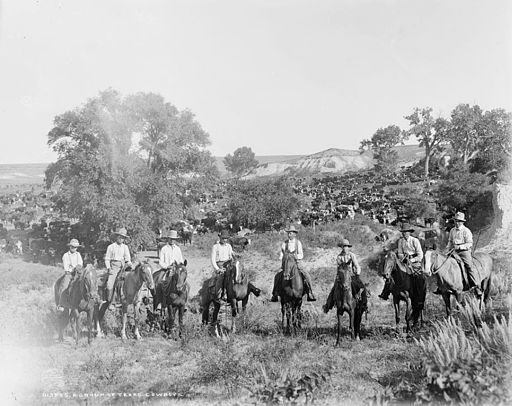This is one of those books that came over the transom at BITS. Written by screenwriter and novelist Lloyd Fonvielle, it’s a self-published collection of stories that seem not to
have seen the light of day until now. Springing from obscurity, they bear the
marks of an inspired imagination, well informed by western movies.
A caveat at the
outset, for readers of the traditional western. There’s both a dark and raunchy
edge to some of these stories. If they were movies themselves, they would
challenge the MPAA reviewers given the job of labeling them with suitable
parental warnings. One or two would be candidates for an NC-17 rating.
Themes. The stories take place in a world of shootings,
killings, and various frontier atrocities, but the recurring interest in them
has to do with relations between men and women. Typically a man of some
character finds himself dealing with a woman of equal nerve and grit.
In the longest of
the stories, “The Girl From the Red River Shore,” a cowboy on the run from the
law finds a girl left for dead by outlaws in Comanche country. Rescuing her, he
is persuaded to go after the men who attacked her, and there follows a series
of encounters with ruthless desperados. Adapting almost too easily to the
kill-or-be-killed ethos of the West, she puts an end to her share of them,
braining one with a rock, putting bullets through others.
 |
| Texas cowboys, 1901 |
The two get
themselves in and out of one tight spot after another, but it’s the give and
take between them that provides the most entertainment. Their scenes of
dialogue show the tentative building of a bond. As she opens up to him, he
holds to a belief that folks should mind their own business, which turns every
conversation into a kind of chess game.
As they confront one
perilous obstacle after another in their journey, a reader suspects that the
story was originally conceived as an idea for a western movie. In it are
homages to Budd Boetticher’s Comanche Station (1960) and Don Siegel’s Two Mules For
Sister Sara (1970).
 |
| In the Desert, Frederic Remington, c1888 |
In “Sans Peur et
Sans Reproche,” a dashing lieutenant is matched up by the officers’ wives with
a stunning beauty who arrives from New Orleans for a visit at a remote
fort. He gallantly escorts her to
the post and is her dance partner at a breathlessly awaited social event.
Contrary to everyone’s expectations, however, he declines to offer marriage,
explaining that life as an Army wife would be miserable for her.
Romance. The understated irony in many of the stories
tempts one to think of them as anti-romances. Yet beneath that façade, there is
an undercurrent of romance that is sometimes comic and occasionally pretty
dark. A good example is “Spanish Is the Loving Tongue.” In that story, a cowboy
sets out for Mexico on a quest to be reunited with a girl he loved long ago,
though it means facing death because of a man there he once killed.
 |
| Lloyd Fonvielle |
Wrapping up. The stories are well paced and told with an
economy that many writers would find instructive. The narrative voice is wry,
matter-of-fact, and dry as the desert West. Dialogue between his often laconic
characters is sharp and humorously pointed.
The blunt sexual
content of some stories pushes the boundaries of the genre. While it may shock
some readers, the intent seems not to be erotic but to represent a fact of
frontier life, reflecting a gross brutality to be found sometimes among
hardened men and women.
Fourteen Western
Stories is currently available
at amazon in paper and ebook formats.
Further reading:
Henry Parke has a
lengthy and informative interview with the author at his blog.
Image credits:
Author’s photo,
amazon.com
Others, Wikimedia Commons
Coming up: John Reese, Rich Man's Land (1966)

Downloaded it, Ron.
ReplyDeleteRon, thanks for the review. I'll look it up.
ReplyDeleteFonvielle sounds like an interesting guy: a successful Hollywood script writer with an unrequited love for westerns. I need to get this. Thanks Ron.
ReplyDeleteYes to all the above.
ReplyDeleteI am halfway through. This is excellent!
ReplyDelete